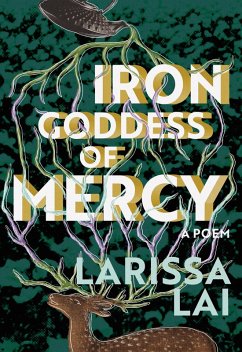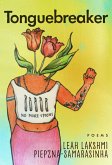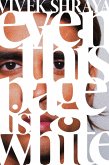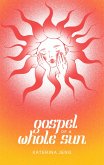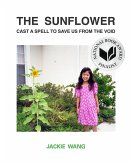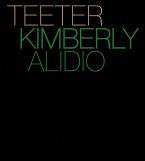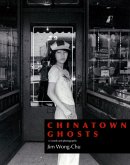Iron Goddess of Mercyby Lambda Literary Award winner Larissa Lai (for the novel The Tiger Flu) is a long poem that captures the vengeful yet hopeful movement of the Furies mid-whirl and dance with them through the horror of the long now. Inspired by the tumultuous history of Hong Kong, from the Japanese and British occupations to the ongoing pro-democracy protests, the poem interrogates the complicated notion of identity, offering a prism through which the term Asian can be understood to make sense of a complex set of relations. The self crystallizes in moments of solidity, only to dissolve and whirl away again. The poet is a windsock, catching all the affect that blows at her and ballooning to fullness, only to empty again when the wind changes direction. Iron Goddess of Mercy is a game of mah jong played deep into the night, an endless gamble.
Presented in sixty-four fragments to honor the sixty-four hexagrams of the I Ching, Iron Goddess of Mercy also borrows from haibun, a traditional Japanese form of travel writing in which each diary entry closes with a haiku. The poem dizzies, turns on itself. It rants, it curses, it writes love letters, but as the Iron Goddess is ever changing, so is the object of her address: a maenad, Kool-Aid, Chiang Kai-shek, the economy, a clown, freedom of speech, a brother, a bother, a typist, a monster, a machine, Iris Chang, Hannah Arendt, the Greek warrior Achilles, or a deer caught in the headlights.
Finally, a balm to the poem's devastating passion and fury, Iron Goddess of Mercy is also a type of oolong tea, a most fragrant infusion said to have been a gift from the
compassionate bodhisattva Guan Yin.
Summoning the ghosts of history and politics, Iron Goddess of Mercy explores the complexities of identity through the lens of rage and empowerment.
This publication meets the EPUB Accessibility requirements and it also meets the Web Content Accessibility Guidelines (WCAG-AA). It is screen-reader friendly and is accessible to persons with disabilities. A Simple book with few images, which is defined with accessible structural markup. This book contains various accessibility features such as alternative text for images, table of contents, page-list, landmark, reading order and semantic structure.
Presented in sixty-four fragments to honor the sixty-four hexagrams of the I Ching, Iron Goddess of Mercy also borrows from haibun, a traditional Japanese form of travel writing in which each diary entry closes with a haiku. The poem dizzies, turns on itself. It rants, it curses, it writes love letters, but as the Iron Goddess is ever changing, so is the object of her address: a maenad, Kool-Aid, Chiang Kai-shek, the economy, a clown, freedom of speech, a brother, a bother, a typist, a monster, a machine, Iris Chang, Hannah Arendt, the Greek warrior Achilles, or a deer caught in the headlights.
Finally, a balm to the poem's devastating passion and fury, Iron Goddess of Mercy is also a type of oolong tea, a most fragrant infusion said to have been a gift from the
compassionate bodhisattva Guan Yin.
Summoning the ghosts of history and politics, Iron Goddess of Mercy explores the complexities of identity through the lens of rage and empowerment.
This publication meets the EPUB Accessibility requirements and it also meets the Web Content Accessibility Guidelines (WCAG-AA). It is screen-reader friendly and is accessible to persons with disabilities. A Simple book with few images, which is defined with accessible structural markup. This book contains various accessibility features such as alternative text for images, table of contents, page-list, landmark, reading order and semantic structure.
Dieser Download kann aus rechtlichen Gründen nur mit Rechnungsadresse in A, D ausgeliefert werden.

